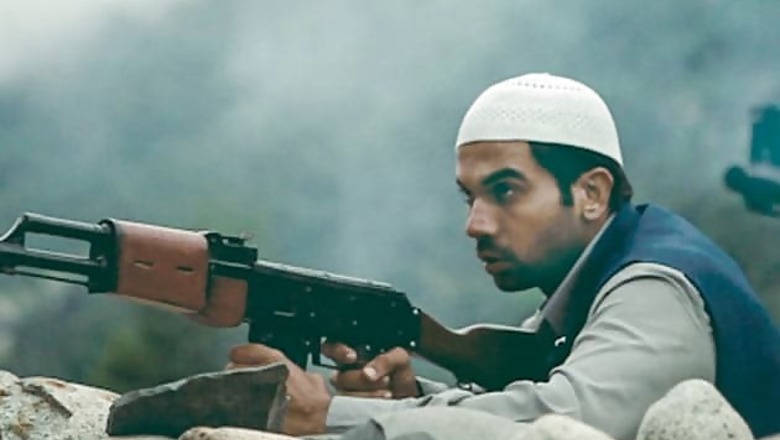
views
New Delhi: How would you define an authentic biopic? This is a question which has been bothering me for many months now. With each new film based on facts and real people's lives, we get into the debate about their authenticity and the constructed reality they portray, at least try to portray. It is quite evident that the makers and the critics are thinking in two separate directions. For one it is also an expression of their sub-conscious ideas and the other sees it as a story that is attempting to portray reality.
Some months ago, an acclaimed Indian filmmaker was speaking on TV about how he gets confused about the final product at the planning stage. He said, "After a while I realised that you can't have a perfectly similar film than your script, so you try to reach as close as possible." This statement in itself gives the glimpse of the complexities involved in the process of making a biopic.
Initially, biopics were treated as a sub-genre, simply because the story belonged to different genres, which also happened to be based on certain people or events. Slowly and steadily, it has become a genre in itself as the filmmakers are showing all facets of the dice. As you know, between black and white, there are several shades of grey. Similarly, a biopic can be a love story, an action drama or a comedy film but it can also be the fictionalised reconstruction of a real person's life events.
Director Hansal Mehta's 'Shahid' is based on the life and times of slain Mumbai activist-lawyer Shahid Azmi. The narrative structure of the film is linear, let's put it straight, it covers the span of Azmi's later life. He was killed at a tender age of 32 and his last seven years were dedicated to under trial and innocent people caught under different laws. As per the records, he successfully pleaded for 17 acquittals in 7 years, indeed a high rate for the otherwise slow judiciary system.
A major part of the film is dedicated to court room trials and Shahid's (Rajkumar Yadav) sensible-factual approach towards them. No jazzy cameras, no joking judges, no overtly dramatic public prosecutors, Shahid's faith in the Indian judicial system tempts him to go with the moment's flow. Hand held camera work is the only option in such a situation that too should happen at the proper eye level; otherwise it has the chances of presenting the facts from a bird's eye view. Further, the claustrophobic spaces and dimly lit courts have been displayed. Light could have been more but I have seen the functioning of courts, especially special courts, in similar circumstances.
Mehta has touched the difficult parts of Shahid's life in a way which confuses before it turns into a love story between Rajkumar and Prabhleen Sandhu (Mariam). Initially, when it is shown that Shahid takes training in Kashmir, apparently Pakistan occupied, and gets arrested on his return to India. He meets ideologues of different faiths in the jail while serving the sentence under TADA. Before this, he had seen the Mumbai riots of 1992 with his own eyes, so all this was enough to transform him into a hardliner like several other cases but he decided to explore the path of justice once he became disillusioned. This fact hasn't been hidden in the film, so where is the problem? Didn't he practice in Mumbai? Didn't he battle with his past throughout his life? Doesn't he sum up his struggle in one sentence, "Thoda time lagta hai lekin ho jata hai?"
Yes, the director appears in awe of Shahid's persona but at the same time he has shied away from the issues of which he wasn't sure of. He doesn't give a clear picture of the rioters of 1992, neither he tells us who is making threatening calls to Shahid, so Mehta has tried to remain focussed on the actual underdog story. Yes, it is true that Mehta perceives Shahid's life as morally upright but what is there to go against him in this regard? However, heart change is a thing nobody can be sure of, so ultimately it comes down to the audience and the ideologies they follow but evidences and events suggest that the benefits of doubt should be given to Shahid.
The Hindi film industry has been accused of the victimisation of the minority at several occasions, and many directors tried to counter it by creating a good hearted Muslim character. This is a dangerous trick as it doesn't give the viewers any idea about the reasons behind a person's hostile behaviour towards the society. It simply says that all type of people exist in the same vicinity. What a lame excuse! At least, Mehta doesn't use any such ploy. These people live in a dingy house like countless poor families where there is absolutely no privacy, not even to study, leave aside love making. The germ of terrorism doesn't bug Shahid despite him dealing with suspects of terrorist acts, may be because he had felt it all by himself. Maqbool Memon's character is also there to present the counter-view.
What to say about the acting! Just that Rajkumar Yadav's flawless acting has made Shahid Azmi a memorable character of the celluloid.
####




















Comments
0 comment